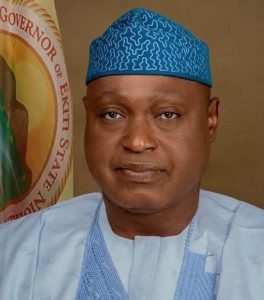Nigeria’s Case for Price Control

By Editorial Team
The rising cost of living in Nigeria has moved beyond normal inflation. Prices of goods and services keep increasing and the blame can no longer rest only on foreign exchange or subsidy removal. Much of the problem comes from unchecked greed. Many business owners and corporate organizations have turned the hardship of citizens into profit, fixing prices without restraint and hiding behind market forces to defend it.
The government can no longer remain a bystander. It must introduce a fair and transparent price control policy. The aim is not to punish business owners but to restore balance between profit and public welfare. The government should thoroughly investigate the cost of production, importation, transportation and logistics before determining reasonable profit margins. This is how to ensure fairness in the market.
Companies continue to declare massive profits while millions of Nigerians struggle to afford basic needs. This imbalance is no longer sustainable. Every day, traders and firms cite rising fuel or dollar rates to justify price increases, yet refuse to reduce prices when those factors improve. This shows that greed has overtaken fairness in the Nigerian marketplace.
Some big organizations now record billions in profit, not through innovation or efficiency, but through inflated prices. Even smaller traders and service providers have joined in. Prices of everyday items and basic services have doubled or tripled within months without clear reason. Many suppliers inflate figures, add excessive margins, and shift all the burden to consumers already battling low incomes.
Critics of price control often warn that it could discourage investment or lead to scarcity. But many developed economies use controlled pricing in key sectors such as food, energy, housing and healthcare. The difference lies in transparency and consistent monitoring. Nigeria can adopt a model that allows open market operations while limiting excesses that threaten public welfare.
Government should work with economists, consumer protection agencies and civil society organizations to determine fair cost structures for major goods and services. When the total cost of production or importation is known, reasonable profit margins can be set. Selling items far above that level amounts to exploitation. It is the duty of government to protect citizens from such practices.
Many Nigerian companies that boast of huge profits are not globally competitive or efficient. They simply take advantage of weak regulation. They pass inefficiency to consumers through inflated prices and still celebrate themselves as successful. When a company reports hundreds of billions in profit while its customers can barely afford daily essentials, that success is empty. True business growth should lift society, not deepen poverty.
Every inflated price has a human cost. It is the parent who skips meals so children can eat. It is the worker who can no longer afford transport to work. It is the small trader whose capital disappears as goods become too expensive. When business owners manipulate prices without conscience, they increase hardship, crime and frustration. The economy must rest on fairness, not exploitation.
Price control should therefore be seen as both a moral and economic responsibility. It must be handled professionally and free from political interference. An independent price regulation board should be established to monitor production costs and set limits based on verified data. The system should involve regular review, consultation with producers and consumers, transparency in price fixing, and firm penalties for manipulation.
When citizens see that prices are fair and reviewed regularly, they will have greater trust in government policy. A regulated market also brings accountability and reduces the temptation to exploit.
At the heart of this issue lies a simple question: how much profit is too much? When does success become oppression? No economy can survive when the rich grow richer by squeezing the poor. If businesses cannot be guided by conscience, they must be guided by law.
Price control is not about killing enterprise; it is about restoring justice. Nigeria needs a policy that rewards productivity, not greed. The economy should serve the people, not exploit them. Until fairness returns to the market, the masses will continue to carry the burden of excessive profits.
The government must act now, not for politics or popularity, but for the dignity and survival of its citizens.







